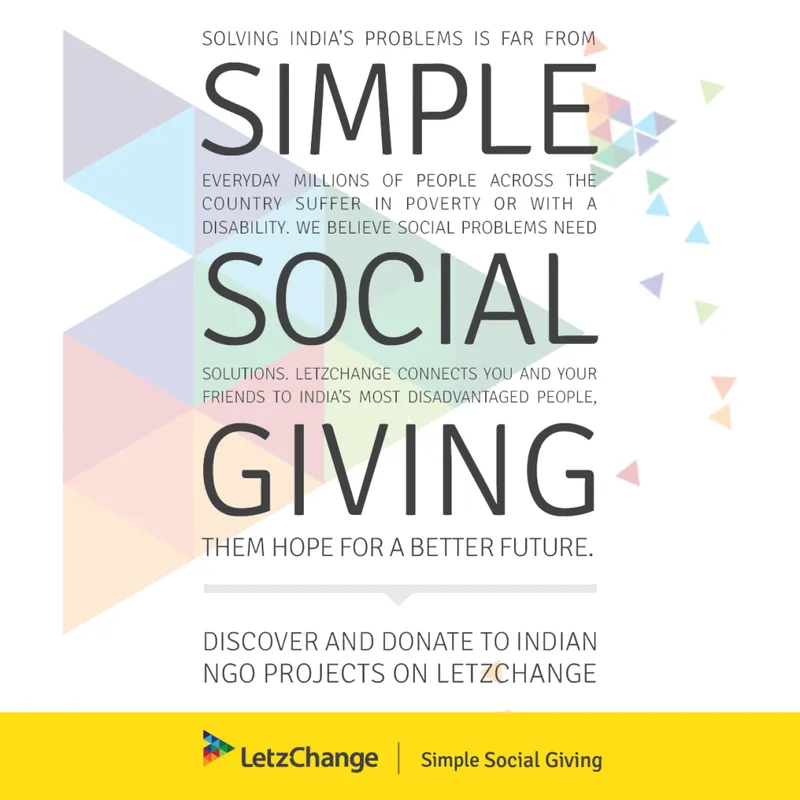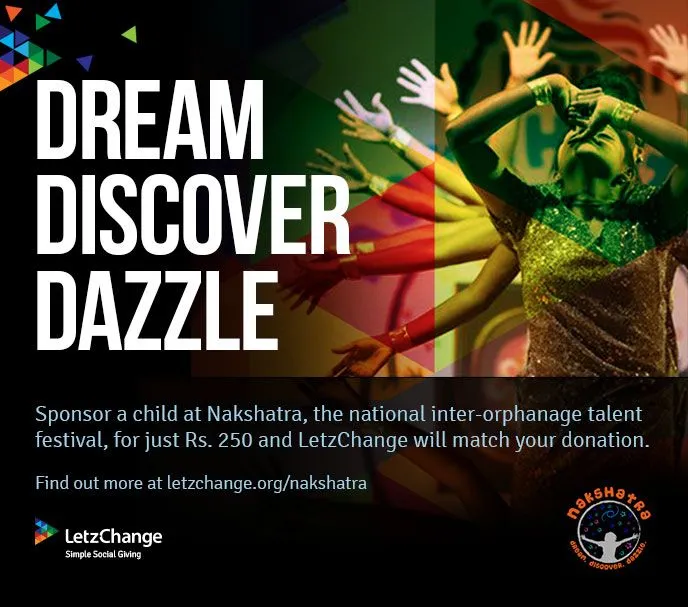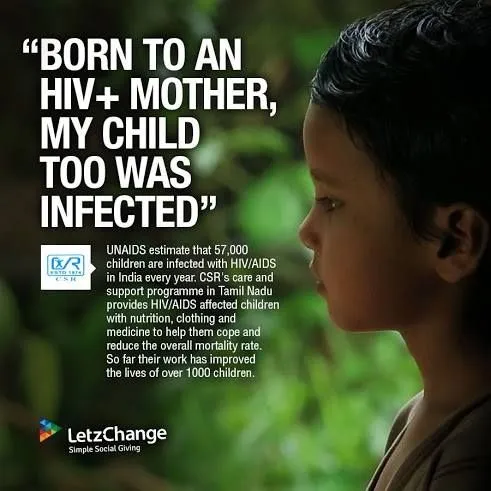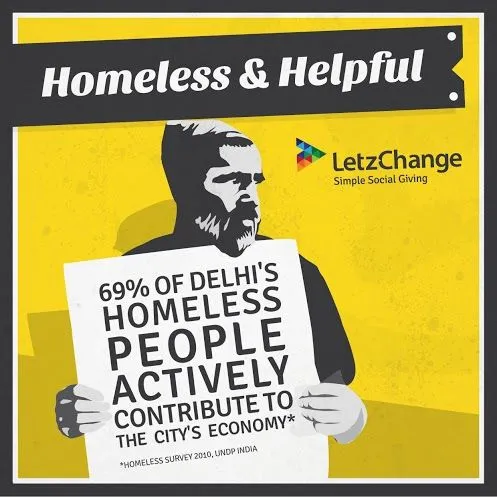Simple social giving: How LetzChange is influencing the way donors interact with NGOs

LetzChange is the brainchild of Vikrant Bhargava. IITian and IIM graduate, his passion for philanthropy, social causes and community development eventually led him to carve out the building blocks for LetzChange. Bhargava realised that the majority of NGOs in the country weren't slick steel and glass buildings or quirky cottages that spent lacs in advertising and marketing, but organisations that barely had a department for advertising. Unbeknownst to most of the world, they carried on the punishing work of change.Setting up LetzChange was only a small part of an uphill battle. Formally launched on January 21st 2014, in a matter of 6-7 months, LetzChange had crossed the 1 crore mark. But, with all the political turmoil concerning NGOs in recent news, people have been left with a foul taste in their mouth. Another finger chopped off the hand of the trust...
YourStory interviewed Rahul Chovva, in-charge of Head Operations at LetzChange.
'There are about 3.3 million NGOs in the country,' he says. 'The issue boils down to the trust that the retail donor, who donates from Rs 50 to Rs 50,000, has to develop . Not all NGOs are trustworthy. There are foundations which help NGOs with grants from lacs to crores, but we're aiming to help NGOs collect retail donations from online users. When it comes to India, like the US or UK, the government doesn't give us a comprehensive list of all functioning NGOs. And, a lot of NGOs shut down for many reasons like lack of good staff or technology or funds. Vikrant also has a separate foundation called LetzDream, a sister organisation, which is a grant-making organisation for NGOs to tackle these issues. He wanted to inculcate the habit of online giving in India, and make this habit simple and social. We want to leverage social media to increase donors. We saw the challenges NGOs face - most NGOs are rural-based and need our help. They don't have good communications or marketing departments to help expose the good work they do.'
That's where LetzChange takes up responsibility. Their system is ambitious, and it works.
'In 2012,' continues Rahul, 'we shortlisted about 120 NGOs from different parts of India. Of those, we further shortlisted 108. We hired about 10-12 filmmakers, started travelling to all these NGOs, and made small infomercials to showcase all their work. It was not for commercial benefit. We started creating profiles for these NGOs.'

For LetzChange, showcasing the work of these NGOs fulfills a sense of duty and purpose - it's also a dire requirement if online users are expected to be donors. In a land where apathy, suspicion and cynicism form their own national emblem, LetzChange's work is important to start re-building from the ruins of trust. Infusing the virtue and socially pragmatic trait of giving needs to align itself with how users behave online, and LetzChange understands that.
'There are a lot of NGOs that submit their annual reports to the government. They're some 100-page documents, which no one would like to read in detail, except a few. To make that process easy and simple, every NGO we select has an opening video. We, then, inform users about certifications the NGO has like 80G or 35 AC. According to these certifications, they get tax exemptions. We inform donors about what kind of tax benefits, they too, get by donating. It's important to exhibit these short success stories of how NGOs have impacted lives along with the technical knowledge of how NGOs work.'
Building a philanthropic foundation has its struggles. The foremost is ensuring stringent and rigorous qualification processes to keep credibility intact. These are financial transactions, after all, and where money is concerned, credibility is top priority. It's only with this strong base that such an organisation can make a cogent argument in favour of regular donations.
'We're connected with about 108 NGOs, but only showcased 71. We want to be very careful about the authenticity of the NGO. We have vetted and verified them, and we want to ensure that your money is going to the right cause. Many NGOs do ask to be part of our website, but they have to go through a process. We're very cautious about adding new NGOs,' warns Rahul. 'Any donor should feel comfortable about us taking care of the verification of the documents, so they can donate and feel good about it.
'NGOs have very good networking amongst themselves. If one good NGO refers another one to us, LetzChange approaches them. With good references and verification, we add the new NGO. We're in the process of scrutinising 20 more, and will probably add them in a month.'
The tricky situation with setting up a foundation that helps people connect with NGOs is that many NGOs in the country are religiously-affiliated. So, tough decisions need to be made about including or strictly excluding them. The same applies to politically-affiliated NGOs.

'We only register NGOs that are not affiliated to any religion. We're not against them, of course. But, what we have seen first hand is that most of our donors would like it if an NGO was further away from religious organisations, because they don't want to be involved in that system. By making sure we don't include religiously-affiliated NGOs, we make donors comfortable in selecting their cause of choice.'Rahul goes into even more detail about the nature of their selection:
'We actually don't fund-raise NGOs themselves. We fund-raise a project an NGO has taken up. When the NGO comes to us with a project, say for building a school for the blind, they'll give give us information about how much funding they need, their approval from the government, etc. We verify all this and go through the details of the project. Only after this we upload their project.
'We put information about how the NGO has divided its costs for the project. It's made easy so people can understand how the money is used for expenses. In this way, even vested interests are largely taken care of. On a half-yearly or yearly basis, we ask the NGOs for a project report.'

For any fundraising organisation, shoring up on donors is essential not only for its survival, but the survival of hundreds of NGOs affiliated that require entities like LetzChange in safeguarding their presence online and offline. Any company, then, needs to get inventive in the kind of incentives and programmes it develops to attract potential donors.
Rahul says, 'Currently LetzChange does not charge any fees for registration of the NGO. This process will continue until we gather more NGOs. We're in talks with building new partners, especially corporate partners. Here, LetzChange will concentrate on employee payroll, where one particular MNC employee contributes in monthly installments over the year to a particular project. It's a way of reaching potential donors.'
These burgeoning responsibilities also mean a requirement for man power. Rahul laughs as he says, 'We actually get applications on our website from people who would like to join us, especially requests to volunteer. So, it's something we're planning out, too. People not only just want to donate, they want to volunteer. They can't, because it's hard to find connections to work in NGOs. We're hoping to act as a bridge, and supply enthusiastic volunteers on an internship basis. It's something that'll help both NGOs and LetzChange.
'You know, we're a fairly young crowd here, though the people we work with are older. But, everyone is enthusiastic and loves to work in a non-corporate kind of way. We'd love to have more people join our team.
'Another way we're attracting donors is with a campaign called Champions of Change. It identifies people who can network more donors. We're in ties with a software company in developing a system that allows us to identify potential donors. Basically, once a donor registers on LetzChange, we request access to their social network. The software would help us in sifting through their friends list to find potential donors. Registered donors are then requested to invite those specific friends (of their choosing). Eventually, we want to give people a platform for fundraising.
'The Campaign is targeted towards three groups: 1. School children (through email), 2. Youth between 15-25 age group (through Facebook/Twitter), and 3. Professionals (through LinkedIn).'
With endless opportunities, LetzChange brings a lot to the platter. It links people to NGOs, brings small and important NGOs to the limelight and acts as a knowledge resource.
As the day comes to an end, Rahul chuckles, 'To be honest, this was just a very brief introduction.'
Visit the LetzChange foundation online on their website, twitter, pinterest, G+ or Facebook.
To check out their short films on various NGOs, visit their YouTube Channel: LetzChange







